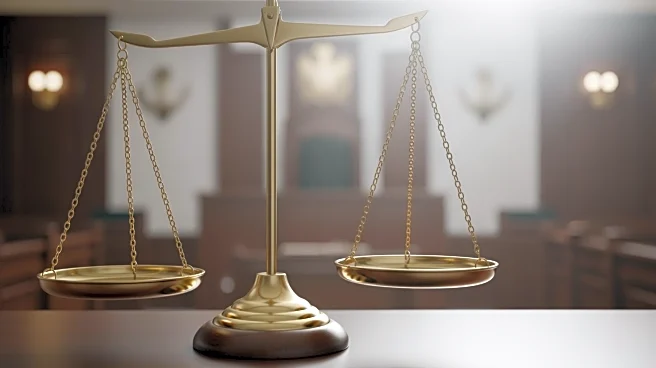What's Happening?
The Supreme Court is currently deliberating on the legality of President Trump's use of tariffs under a self-declared national emergency. The case, which involves two consolidated lawsuits, challenges
the president's authority under the 1977 International Emergency Economic Powers Act (IEEPA) to impose tariffs without congressional approval. During oral arguments, the justices expressed skepticism about the administration's interpretation of IEEPA, which has been used to justify tariffs based on trade deficits and fentanyl trafficking. The plaintiffs, including several states and small businesses, argue that these tariffs have caused significant financial harm and bypass Congress's constitutional authority to set tariffs.
Why It's Important?
This case is pivotal for U.S. trade policy and could have significant implications for the scope of presidential power. A ruling against President Trump could lead to billions of dollars in tariff refunds to U.S. importers and question the legitimacy of trade deals based on IEEPA tariffs. The decision will also clarify the limits of executive power in economic matters, potentially reshaping the balance between the legislative and executive branches. Stakeholders such as importers, exporters, and state governments are closely watching the outcome, which could impact trade relations and economic strategies.
What's Next?
The Supreme Court has not yet issued a ruling or set a timeline for its decision. Observers anticipate that the court's decision will hinge on the interpretation of IEEPA and the constitutional limits of presidential power. If the court rules against the administration, it could prompt legislative action to redefine the scope of emergency powers. Additionally, the ruling may influence future administrations' approach to using emergency powers for economic regulation.
Beyond the Headlines
The case raises broader questions about the separation of powers and the potential for executive overreach. It highlights the tension between national security concerns and economic policy, as well as the ethical implications of using emergency powers for trade regulation. The outcome could set a precedent for how emergency powers are applied in other areas, such as environmental policy or public health.









